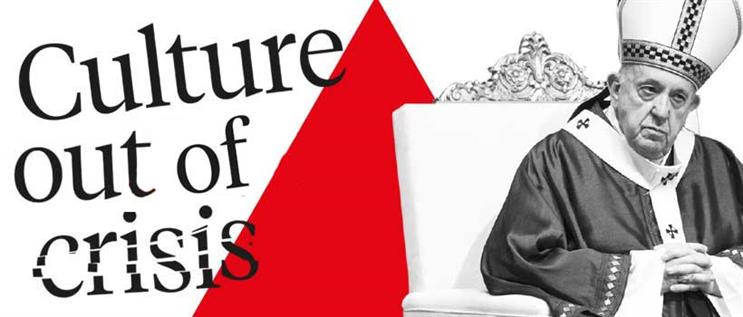As the world spirals into uncharted territory, many people are finding comfort, control and community by turning to spirituality and religion for direction.
While countries have implemented regulations to reduce the spread of Covid-19, there are no obvious rules for how to cope with the consequences of a pandemic – job losses, death, financial struggles, loneliness and so on. With little advice, people have taken it upon themselves to find solace.
In March, when the World Health Organization officially labelled Covid-19 as a pandemic, Google searches for "prayer" surged. One-quarter of UK adults say they have watched or listened to a religious service during the pandemic, according to a recent ComRes survey for Tearfund. One in 20 of those tuning in to those services say they have never been to church before.
People’s willingness to adopt different methods of worship has also grown during the pandemic. The period of lockdown coincided with crucial religious events and in lieu of physically going to houses of worship, millions took to the virtual arena to gather for Passover, Easter and Ramadan. People continued to observe major religious events from their homes and connect with communities online. Jewish people gathered together on video-conferencing apps for seder dinners; Catholics tuned in to Pope Francis’ live-streamed daily masses; and Muslims connected over virtual iftars.
Other noteworthy actions taken to connect people to prayers include a "Call to Prayer" phone service launched by volunteers of the Archdiocese of Chicago; priests taking to TikTok to engage with younger audiences (check out Jose Emmanuel Arroyo-Acevedo, who has been posting daily videos – his most-watched has more than 220,000 views); and YouTube collaborating with six of the biggest Saudi influencers to host the largest online iftar on 19 May and consequently setting a new world record with 183,544 concurrent viewers.
In recent years modern-day spirituality has been on the rise, closely aligning with the wellness wave. This has led to novel ways for people to tap into mindfulness, which include Instagram live meditations, positive affirmation quizzes and virtual sound baths. Media platforms are also making space for spirituality coverage. Last year, Dazed Beauty added a Digital Spa section, Goop published spirituality content under its wellness section, and Arianna Huffington co-founded a podcast called Meditative Story that combines storytelling and mindfulness practices.
The past few months have reinforced mindfulness and other forms of spirituality in people’s priorities. In an article published in March, Jelena Kecmanovic, adjunct professor of psychology at Georgetown University, offered science-based strategies to cope with coronavirus anxiety, with one suggestion for people to connect to purpose and meaning through "spirituality, relationships or pursuit of a cause" – ultimately asking people to explore the "why" of life to help alleviate anxiety. This aligns with the WHO’s advice for coping with Covid-19, which includes the recommendation to "take deep breaths" and "meditate".
Whether people are consciously taking on these suggestions or not, more are carving time out to practice meditation. In April, there were two million more downloads of the world’s top 10 English-language mental-wellness apps, including Calm, Headspace and Fabulous, compared to January, according to a Sensor Tower Store Intelligence study. Headspace even partnered with New York Governor Andrew Cuomo to offer free content to New Yorkers.
As people find different methods to navigate the road to recovery, what is clear is the deeper desire for stability, purpose and community. From virtual prayers to meditative awakenings, people are in search of meaning that transcends science.
In turbulent times, we gotta have faith.
Emma Chiu is global director at Wunderman Thompson Intelligence


